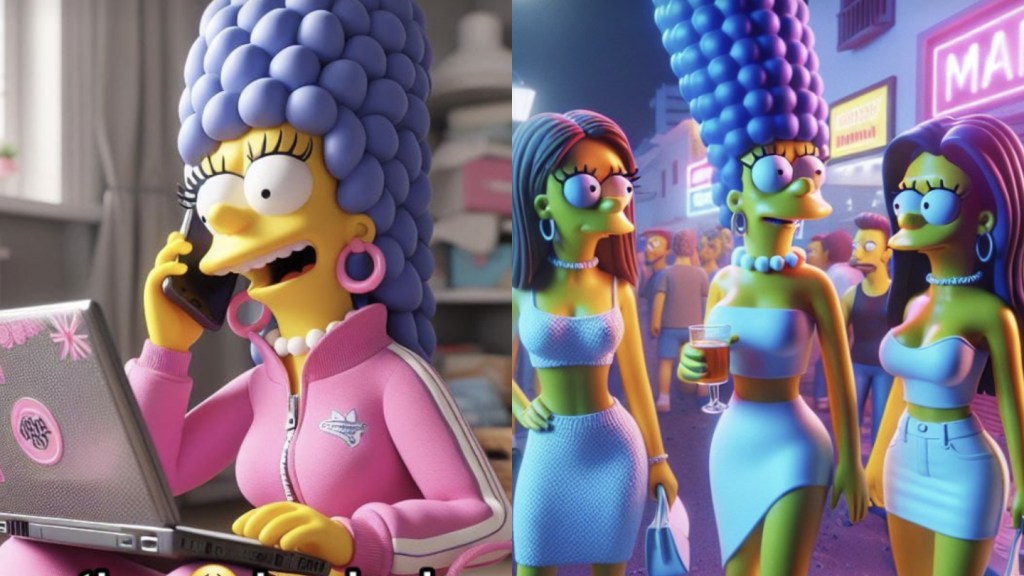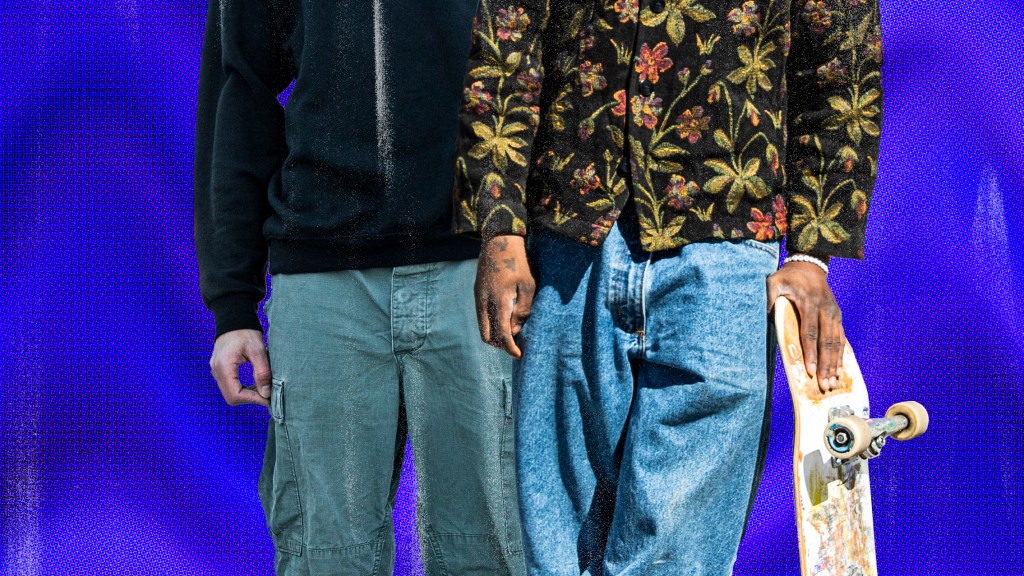Not what all fat people are like. Der Völler, by Georg Emanuel Opitz.
As I approach Nicole Sullivan moments after her presentiation, “Fat Justice,” at the Boston Anarchist Bookfair, I find myself wondering if there is a way to ask an overweight stranger if they feel personally responsible for their size without coming off like a dick.
Videos by VICE
We are in a lecture room at Simmons College. Upstairs, there is what you would expect from such an event: books from Chomsky and Zinn; a coloring book depicting very specific parts of the female anatomy; vegan tote bags; vague talk of a no-state world. So. Many. Pamphlets. There is no shrine to Sacco and Vanzetti, though, which is disappointing.
But here, in this room, Sullivan has surprised. Yes, she hits the expected notes—”body image is a tool of the state and capitalism”—but she also spends a good amount of time lambasting various leftist movements whose politics she doesn’t necessarily find abhorrent and whose actions you wouldn’t expect her to lambast: LGBT advocates, bicycling proponents, vegans, animal rights activists, and even anarchists.
These folks, according to Sullivan, aren’t above using fat people as a propaganda tool to represent all that is lazy, stupid, and unethical. The plump emblems, she says, are contrasted with righteous and enlightened positions, showing overweight people for the negative influence they supposedly are. The theme is clear enough: these people—fat people—are part of the problem.
Sullivan and her co-presenter for the workshop, Cora Segal, show slides depicting fat oppression. There are cartoons of rotund CEOs flattening skinny people who represent taxpayer-funded public sector social programs. There is the wide ass of a morbidly obese person sitting on a chair with the message: “Welcome to Chic-fil-A… Where being obese is ‘genetic’ but being gay is a ‘lifestyle choice.’” There are PETA ads that, in an attempt to convince more people to go vegetarian, compare fat people with whales. There is a racist, fat cop hassling an immigrant. There is a cop depicted as a pig.
A piggy policeman (Photo via)
At one point, Segal—who, like Sullivan, readily admits that she is what doctors would consider to be overweight—feels the need to underscore that she is not a cop. Which is kind of telling; she seems less concerned about symbols that strip cops of their humanity (being drawn as an actual pig) than people fusing her identity as a fat anarchist with that of a fat cop. This is, after all, an anarchist bookfair.
We are given a brief history lesson: we are told that the American body image is intertwined with white supremacy and patriarchy and has its roots in phrenology—the measuring of the human skull. The women’s suffragette movement in the US, we’re informed, exacerbated the problem, choosing to portray the movement as one of thin, white, educated women and their enemies as fat and physically inferior. Flappers binding their breasts during the 1920s didn’t help things, either, apparently. The 1980s are summed up succinctly: “Reagan and bullshit.”
We’re told fat people are either desexualised in pop culture as the butt of jokes or hyper-sexualised in porn. There is no middle ground.
Weight loss surgeries are decried, as is the multi-billion dollar diet industry. The sizes of seats on public transportation are bemoaned. Jurors are more likely to find fat people guilty, we’re told. Fat people, says Segal, make 24 percent less than their counterparts (although she doesn’t mention where she got that statistic from).
“Thin privilege is a real thing,” says Segal.
Science that links obesity to various health ailments is challenged. More than a third of US adults are considered obese, according to the Center for Disease Control and Prevention. That same center lists heart disease, strokes, type 2 diabetes, and certain types of cancer as obesity-related conditions. Sullivan suggests, however, that yo-yo dieting and our “awful medical system” may be to blame.
Protesters dressed up as fat bankers (Photo via)
I’m thinking about that while walking down the lecture hall’s stairs toward Sullivan at the conclusion of the workshop. The social construct of body images that she laid out makes perfect sense to me, but the question of personal responsibility still nags. Sure, fat cop satires and bad blubber puns create unfair norms, but should those shitty metaphors eclipse the importance of diet and exercise, the two things that every health professional incessantly goes on about?
I first ask Sullivan what can be done to change the mindset in some of the leftist communities she mentioned. She gives a stock answer: “You have to start with education.”
Then comes my attempt to ask a fat person if they feel personally responsible for their weight. My focus is on trying not to come off like one of those insensitive dude-bros who wears “no fat chicks” shirts. At that moment, I realize the backward Red Sox cap I’m wearing probably isn’t helping my cause. I stammer out the most muddled question in the history of obese reportage. I use the phrase “society reinforces the notion of,” which is gross.
She references some of her earlier talking points; she questions whether lifestyle changes can sustain significant drops in weight over an extended period of time or if such changes are even necessary or healthy; she says the science is not proven and undermines the very idea that there is an obesity epidemic.
I’m not sure she convinced me.
Eventually, I thank her and walk upstairs, back to the room hosting the actual book fair. There is a woman wearing a tank top emblazoned with a pithy message.
It doesn’t clarify anything, but, given the surroundings, it seems appropriate: “Riot don’t diet,” it reads.
Follow Danny on Twitter: @DMacCash
More stories about anarchists:
Crass’s Penny Rimbaud Doesn’t Care About Urban Outfitters Profiting Off His Band’s Name
Greece’s New Anarchist Generation Are Being Tortured by Police
Meet the Nihilist-Anarchist Network Bringing Chaos to a Town Near You



